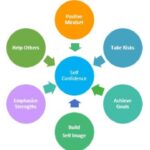First and foremost, it’s critical to recognize that each of our experiences is distinct and varied, so can be each of our healing processes. Some people heal more slowly than others, who heal much more quickly. None of us go into partnerships anticipating experiencing abuse at the hands of a close friend or family member. Sadly, we don’t really have much control over how other people behave.Because abuse frequently worsens over time, early-relationship events may seem insignificant and excusable. The cycle of violence can still keep you mired in a pattern that eventually becomes your norm.
Congratulations on completing the most crucial step in your healing process by leaving your abusive partner. I recognize that you could occasionally feel the need to return because you’re feeling lonely or you think they’ve changed. The likelihood that an abuser will change is still quite low, however. Consequently, I need you to constantly remind yourself that you are enough, beautiful, that abuse is never right, and it is not your fault that your relationship or marriage ended, and that the reason you left in the first place was because it was for the best.
A few pointers to speed up your recovery;
1. You must ensure your safety: If you are currently dealing with abuse, you must put your safety first. It is acceptable to ask for assistance, and if necessary, you must report the situation to local law enforcement because an abuser will never change so leave to live.
2. Establish boundaries; Setting boundaries both during and after a relationship is crucial. Also think about establishing digital boundaries, such as barring your ex or taking a sabbatical from social media. It facilitates healing at your own speed.
3. Make self-care and self-love a priority; Without these, survivors run the risk of ending up in another violent relationship. Rekindle old interests and indulge in your former passions. Concentrate on activities that bolster your self-assurance and assist you in regaining emotional balance.
You can spend time with family and friends and take that long-planned vacation because “you deserve all the love in the world.”
4. Forgive yourself: Remind yourself that the abuse was never your fault and that there was nothing you could have done to deserve that abuse. If you need to set an alarm on your phone or write this down on a Post-it note, do it. Keep in mind that everyone deserves to be in healthy relationships.
5. Become informed on abuse; Educating yourself about abuse can help you stay out of precarious situations in the future. Read more books that will boost your self-assurance, domestic violence awareness publications, and listen to programs that will have a beneficial influence on you.
You don’t have to go through this alone; family and friends can aid in you healing. Take care of yourself.




0 Comments